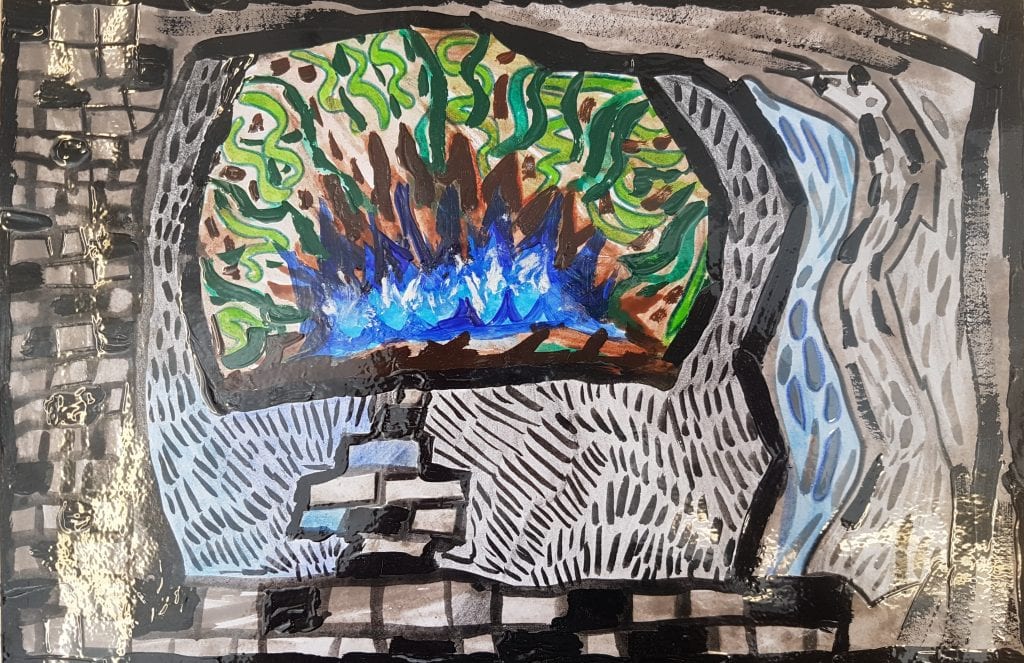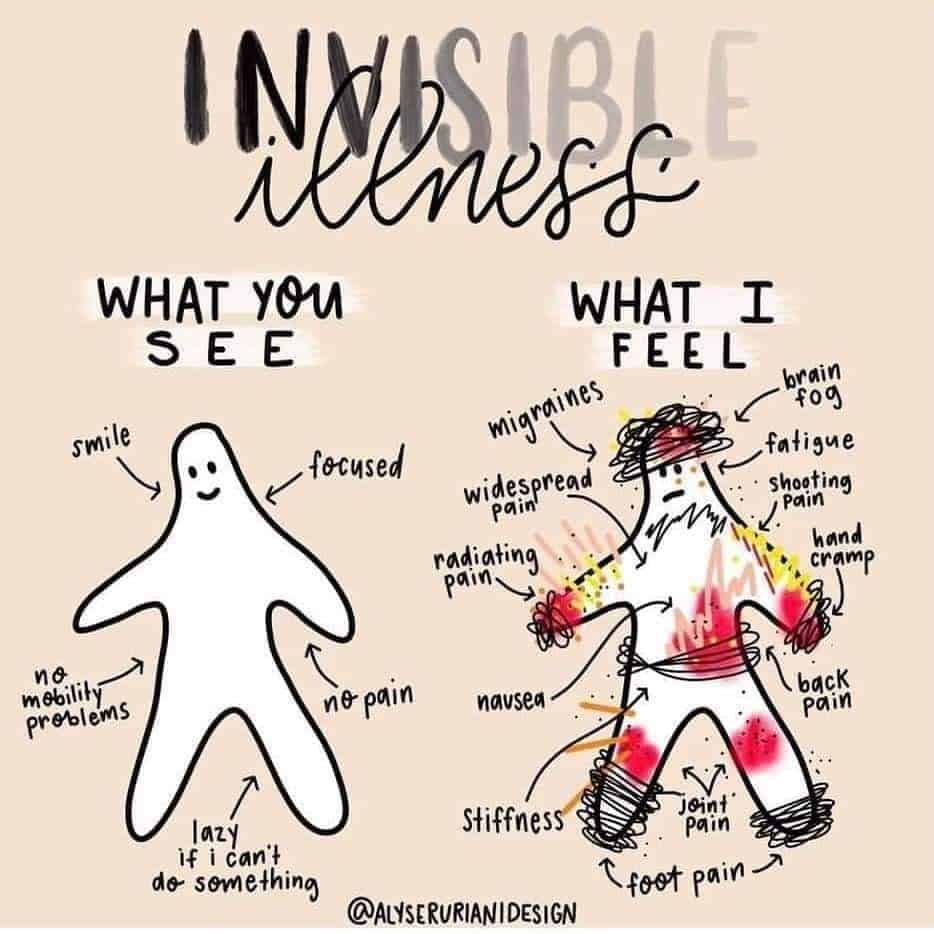Me, My Diagnosis and I

What’s it like to be told you have a mental illness or a personality disorder? For some, it brings relief in the form of reason and validation for their behaviours, thoughts and emotions. It confirms to them they are not mad, but experiencing a set of symptoms that others also experience. For others, it can be devastating, compounding their fears that they are mad and making them feel further isolated from society and their peers.
It is important to understand that unlike the diagnosis of a physical illness or disorder, mental health diagnoses are not an explanation of why symptoms are present, but simply a shorthand for a cluster of common symptoms. This can leave people feeling at a loss of where to go and what to do about their diagnosis. How can you remedy something for which there appears to be no root cause?
The guest writer for this blog post, Bristol Wellbeing College student David Marks, writes about his experience being given the diagnosis of Borderline Personality Disorder, after 20 years of feeling, in his words, “completely mad”.

It was the day somebody pulled the pin on the grenade and threw it into the room where I was sat. It blew up in my face and when the smoke cleared and the ringing in my ears has stopped, all that was left was a desolate, apocalyptic landscape. Everything fell silent, I could not hear peoples voices, no sense of smell or taste, just an emptiness and a feeling that I was now completely lost, walking around, a ghost in my own body, without any direction, not knowing who I was or what I needed. Nobody prepares you for this; they just deliver the devastating news and thank you for your time, before sending you on the way with the message Don’t kill yourself. If you feel that way, here’s a number, all the best.
“What happens next?” I ask. “Where do I go with this? Is there any treatment?”
No reply
I had to scratch the name of the disorder down on the back of my bus ticket and go home. I hadn’t heard of it, but it did not sound good. It felt like the end. It had confirmed my worst suspicions. I was a terrible person and now it was all over, there was no more I could do, I was going to be stuck like this forever. Taking to the internet to find out what this diagnosis was added to the grief. My life had already been marked with periods of chaos due to having an unstable sense of self, but this was ugly reading. Here were the criteria for the diagnosis:
Borderline Personality Disorder
A pervasive pattern of instability of interpersonal relationships, self-image, and affects, and marked impulsivity beginning in early adulthood and present in a variety of contexts, as indicated by five (or more) of the following:
(1) Frantic efforts to avoid real or imagined abandonment.
(2) A pattern of unstable and intense interpersonal relationships characterized by alternating between extremes of idealization and devaluation.
(3) Identity disturbance: markedly and persistently unstable self image or sense of self.
(4) Impulsivity in at least two areas that are potentially self-damaging (e.g., spending, sex, substance abuse, reckless driving, binge eating).
(5) Recurrent suicidal behaviour, gestures, or threats, or self-mutilating behaviour.
(6) Affective instability due to a marked reactivity of mood (e.g., intense episodic dysphoria, irritability, or anxiety.
(7) Chronic feelings of emptiness.
(8) Inappropriate, intense anger or difficulty controlling anger (e.g., frequent displays of temper, constant anger, recurrent physical fights).
(9) Transient, stress-related paranoid ideation or severe dissociative symptoms.
I didn’t choose this and I certainly wouldn’t wish this is on another human being. Borderline Personality Disorder is caused by early childhood trauma, causing an overdevelopment in the amygdala – the part of the brain that scans for potential dangers, and underdevelopment in the hippocampus, the part of the brain responsible for emotional response, meaning they don’t communicate coherently with one another.
I believed this was who I now was and who I would always be, defined by this criteria. Feeling bombed out and isolated, and fearing myself and the impact I could possibly have on others, I started to research further. Finally, I came upon a community of people online with the disorder who were all sharing their experiences. These people were art researchers, scientist, GP’s, musicians, yoga teachers, mental health workers. Everyday people! They were imparting a different reality through their learning, a reality that resembled something closer to what I felt.
What I noticed most about the members in this online community were the variety of styles in which they wrote where their individual personalities poured out onto the page. I could sense all the nuances that separated them apart. For me, this was an epiphany. They were not as the criteria suggested. We, with this diagnosis, were way more than the sum of its parts, with so many more layers to explore. In this moment of break-through, it was as though time returned to me. My hearing and vision came back into focus and my sense of taste and smell heightened. I felt alive again and now with a new meaning and purpose to take me forward.
I began to write down my own description of Borderline Personality Disorder that knew to be true of myself and my experiences:
Highly self-aware At any given moment, most people with BPD are profoundly aware of their feelings. For instance, they might feel excited going to a party, rejected when they see someone who was unkind, abandoned when the person they came with engages with someone else, and happy when they meet a new person with common interests.
Intense passion The ability to feel and express intense passion for a person, art, literature, music, sports, food, dance, and other areas of interest comes naturally to a person with BPD. In fact, they know no other way of living other than to engage fully in their craft because life is not worth living without it.
Exciting and alive When a person with BPD is engaged in their passion, they are thrilling to be around. Their excitement for doing their craft is contagious and others absorb some of their enthusiasm. It is exhilarating and inspiring to see an athlete break a new record, a musician playing their instrument, or a dancer perform.
Ability to sense emotions of others People with BPD have a keen awareness of the emotions of others. Oftentimes, they will sense an emotion such as anger from someone else that the person is ignorant or in denial of feeling.
Strong empathetic side Because a person with BPD possesses the ability to sense the emotions of others, they also tend to absorb said emotions. As such, not only are they are able to “walking in a person’s shoes” naturally and strongly empathise.
Powerful intimate connection Two ingredients to a deep intimate connection are an awareness of self and the ability to empathise with others. Because a person with BPD has these in abundance, they tend to make powerful, whole-hearted and unreserved connections very quickly, almost too quickly for other people’s level of comfort.
Desire for community BPD is one of two personality disorders (the other is dependent) that fully appreciates and understands the need for others to be in their life. Their perpetual fear of abandonment propels them to engage in relationships whether new or old and means they grasp the need for community at a deep level.
Ahh, that’s better.
Still, I had work to do. Newly arrived in Bristol, I set about looking at what resources were available. I knew I thrived on structure and routine, so I set about navigating the mental health system, aware that there was effective treatment in the form of therapy. I pushed to get myself on a waiting list and receive regular support through a care coordinator. I also discovered Bristol Wellbeing College, where I was able to attend wellbeing workshops and activities that helped me realise that I have a creative side that I really enjoy and which I now use in my approach to living with my diagnosis. Creativity has become a tool I use to self soothe, along with self-deprecating humour – if you can’t laugh at yourself, you will only cry. With Bristol Wellbeing College I was able to go through a journey of self-discovery, where being able to share my story, experience and the research I had done was incredibly validating. Eventually, I was invited to work on co-producing a new workshop with the College on coping with identity crises when being diagnosed with a mental health disorder or illness: Me, My Diagnosis and I.
Now, I was no longer just existing, I was living and thriving and able to make far bigger changes to give myself a greater quality of life and help others do the same. I was able to change previous maladaptive coping mechanisms for healthy ones through self-care activities, including yoga, meditation, mindfulness, dancing, enjoying the company of others, travel, pampering, art, photography, longboarding and, this year, dress making. Among these new tools and skills, writing has been one of the most useful. I had buried this stuff for so long, having nowhere to go with it and too ashamed to share my thoughts and feelings with others, believing I would come across as crazy. Writing gives me an opportunity to hold a mirror up to myself and put my life under a microscope, where I can learn and set further goals around where I want to develop.
One of those goals was to give back. I decided to take my experience and use it in a creative and positive way that could benefit others. My peer employability support worker at Bristol Wellbeing College signposted me to Changes Bristol, where I was able to enroll on the facilitator workshop, which I now volunteer in at their weekly meeting. This is an absolute privilege: again the trust and validation I have been given to take on this role has made significant changes to the self-esteem and confidence that I completely lost when first confronted with my diagnosis.
Staying emotionally well is hard work and can take a lot of effort. But I found it harder to be unwell and that’s the alternative, which I don’t wish to return to. The bottom line is this: don’t dismiss anyone with BPD. Take the time to engage and learn from them because they have so much to offer and can make life wonderful. If it is you that has been diagnosed, remember: be kind to yourself, take small steps, reach out, build resources and tools that work for you, try to connect with others and share your experience in safe spaces. Do things that give you a sense of purpose and achievement, or just discover things to do that you enjoy. You can have some autonomy from mental illness; it’s not your whole self, just a part of your uniqueness and individuality. Sometimes that should be celebrated.
Image and words by David Marks
On the Me, My Diagnosis & I course, we asked participants to present their diagnosis as an image. Here are a couple of the results:


